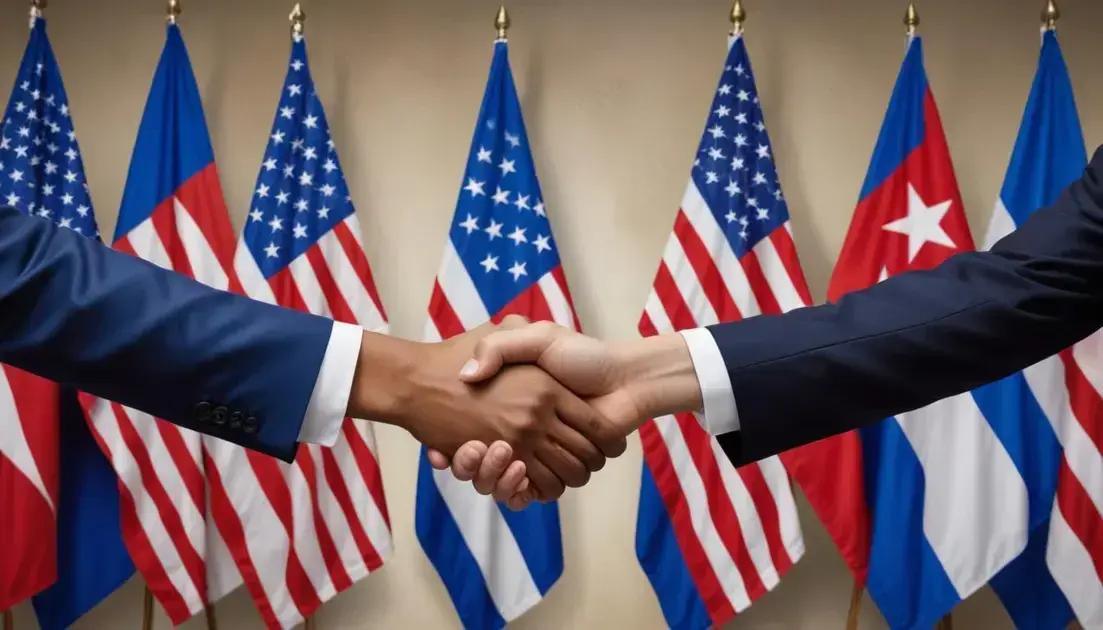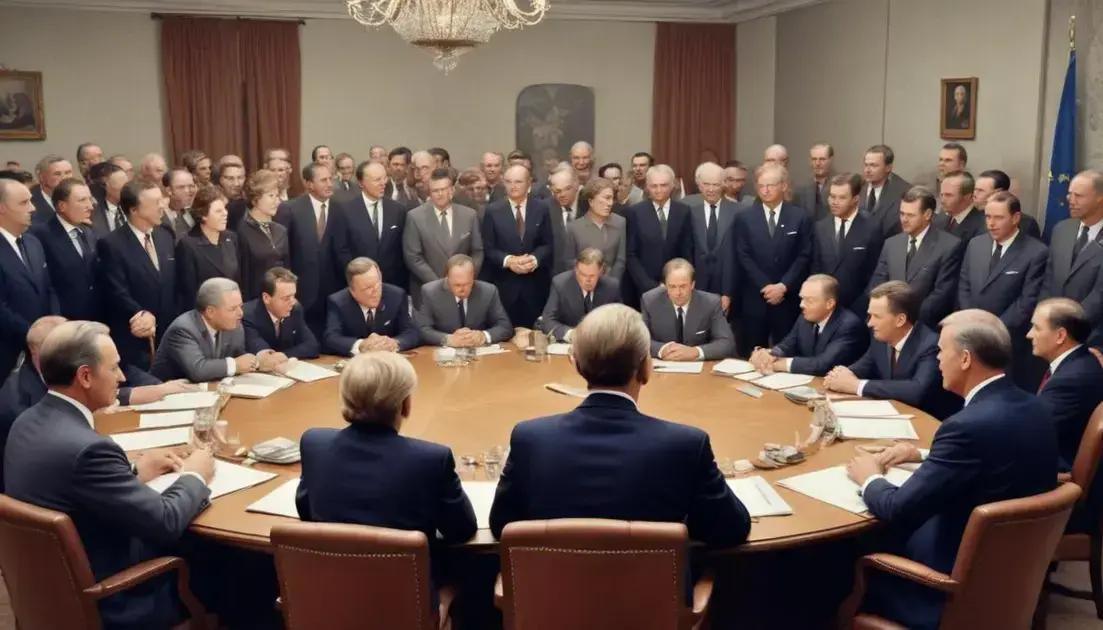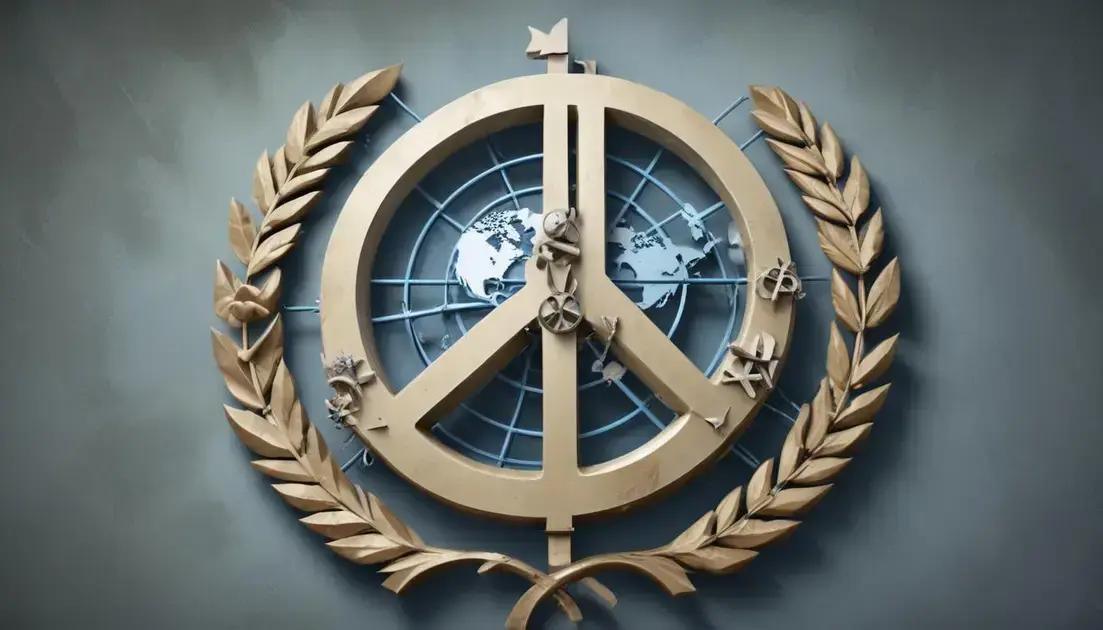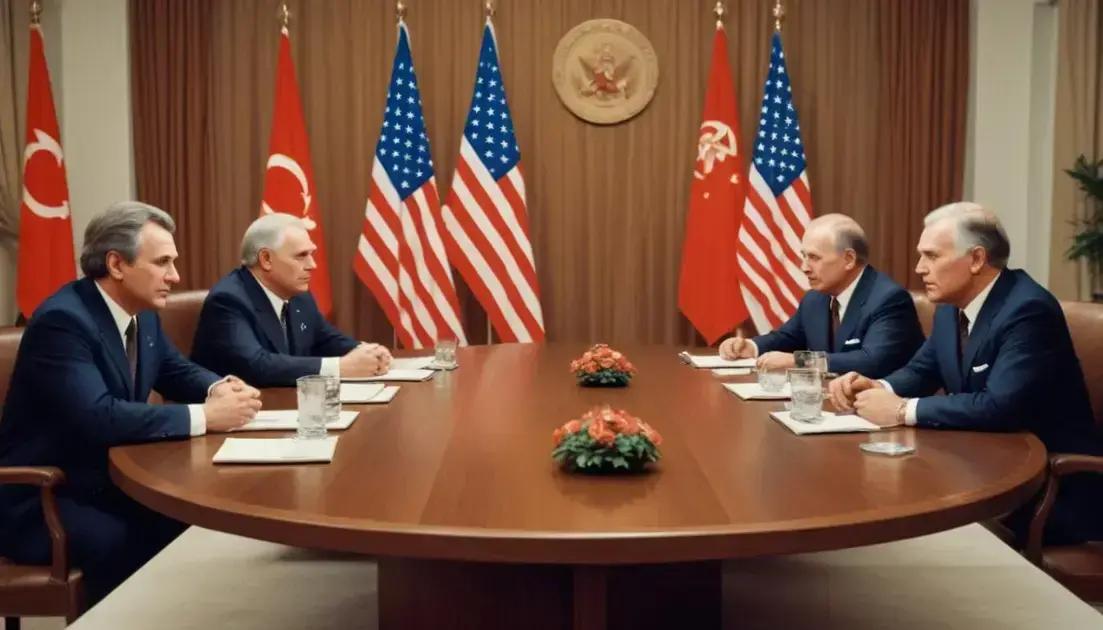
US-Cuba Rapprochement: Politics, Diplomacy and Impact
The renewed US-Cuba relations mark a significant shift in diplomatic and economic engagement. This change opens doors for increased tourism, trade opportunities, and cultural exchanges. While many embrace the potential benefits, concerns about human rights and political conditions in Cuba remain prevalent. Public reactions vary, showing both enthusiasm for new opportunities and caution regarding past issues. Overall, this evolving relationship could foster mutual growth and understanding.
The recent developments in Cuba Relations mark a significant shift in international politics. After years of tension, can this new chapter really foster peace?
Historical Context
The historical context of US-Cuba relations is complex and full of ups and downs. It goes back more than a century, shaped by politics and key events. In 1898, the Spanish-American War marked the beginning of U.S. involvement with Cuba.
After the war, Cuba gained independence, but the U.S. kept a strong influence. This led to the Platt Amendment, which allowed the U.S. to intervene in Cuban affairs. Many Cubans felt this was a loss of sovereignty.
In 1959, Fidel Castro’s revolution changed everything. The U.S. opposed his government due to its communist leanings. This led to the Cuban Missile Crisis in 1962, a tense moment that almost sparked nuclear war.
For decades, the U.S. enforced strict trade sanctions against Cuba, aiming to isolate the island. Yet, Cuba maintained its identity, showing strong resilience. Many Cubans fled to the U.S., creating a significant diaspora.
In recent years, both countries have shown interest in improving ties. The 2014 announcement to restore relations was a historic turning point. This shift opened doors for dialogue, trade, and tourism.
Understanding this historical context helps us see how far both nations have come. It lays the groundwork for potential cooperation and growth in the future.
Political Implications
The political implications of US-Cuba relations are significant. These ties can affect not just the U.S. and Cuba, but also their neighbors and the world. When the U.S. lifted some restrictions, it changed the way countries view Cuba.
For example, improving relations can open Cuba to more trade. This can lead to better economic growth. A stronger economy might help the Cuban government remain stable. It could also foster more democracy.
However, not everyone is on board. Some groups in the U.S. still oppose engaging with Cuba. They worry about human rights and political freedoms within the country. These concerns often spark debates in Congress and among the public.
Additionally, countries in Latin America see this change as a chance to collaborate more with Cuba. They might see it as a way to strengthen regional unity. For them, good relations with Cuba can mean better trade and mutual support.
Overall, the political implications of US-Cuba relations are vast. They can shape policies and alliances for years to come.
Diplomatic Engagements
Diplomatic engagements between the U.S. and Cuba have seen important changes in recent years. High-level meetings have become more common, with leaders seeking to improve ties. These meetings often focus on trade, travel, and security.
In 2015, President Obama made a historic visit to Cuba. This visit signaled a new era of engagement. It opened up discussions on various issues, from human rights to economic policies.
Both countries have also worked together on specific projects. For example, they have partnered in health initiatives and environmental protection. These collaborations show a commitment to finding common ground.
Moreover, cultural exchanges have increased. People from both nations are now able to visit each other more easily. This has enriched the understanding of each other’s cultures. It helped break some stereotypes that existed in the past.
Overall, diplomatic engagements are crucial for building a lasting relationship. They pave the way for cooperation and mutual respect, which can lead to further improvements in the future.
Economic Opportunities
Economic opportunities between the U.S. and Cuba are growing thanks to improved relations. With the lifting of some trade restrictions, businesses are excited. They see Cuba as a new market with great potential.
Cuba’s tourism sector is particularly promising. More Americans can now visit Cuba. This influx of visitors can boost local businesses, including hotels and restaurants. It creates jobs and brings money into the economy.
Additionally, there’s interest in agricultural trade. Cuba has a demand for U.S. food products. Farmers and U.S. businesses can benefit from exporting goods to Cuba. This can help both economies thrive.
The technology sector also sees potential in Cuba. As the country modernizes, American tech firms might partner with Cuban startups. These partnerships can lead to innovation and growth for both sides.
Overall, economic opportunities are tied to the progress in U.S.-Cuba relations. Working together can lead to mutual benefits for both nations.
Public Reactions
Public reactions to the reestablishment of U.S.-Cuba relations have been diverse. Many people are excited about the new opportunities for travel and trade. They see it as a chance to learn more about each other’s cultures.
Some Americans are eager to visit Cuba. They want to experience its rich history and vibrant art scene. For these travelers, Cuba represents an adventure that was once off-limits.
However, not everyone shares this enthusiasm. Some critics voice concerns about human rights issues in Cuba. They worry that engaging with the Cuban government might ignore the struggles of its people.
The Cuban-American community also has mixed feelings. Some welcome the chance for change and connection. Others fear that a closer relationship could erase their unique Cuban heritage.
Social media has played a vital role in these discussions. Platforms allow people to share their views easily. This has sparked debates about the best way to move forward.
Overall, public reactions show a mix of hope and concern as both nations navigate this new chapter.
Conclusion
In conclusion, the renewed US-Cuba relations bring both challenges and opportunities. Engaging diplomatically can open doors for economic growth and cultural exchange. Improved ties may lead to increased tourism, trade, and cooperation in various sectors.
However, it’s essential to address concerns about human rights and the well-being of the Cuban people. Public reactions highlight a range of opinions, showing that many are hopeful yet cautious. Balancing these views is crucial as both nations navigate this new phase together.
Ultimately, fostering understanding and collaboration can lead to a better future for both the U.S. and Cuba. By working together, they can create a positive impact on their societies and the broader region.


